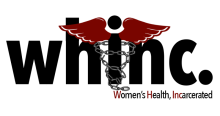Bhavana Sai Garapati
Posts by Bhavana Sai Garapati

Although the United States only has about 5% of the world’s population, it holds about 25% of the world’s prison population. According to the Prison Policy Initiative, the U.S. currently has about 2.3 million people in a variety of confinement facilities like federal and state prisons, local jails, juvenile correctional facilities, immigration detention centers, military prisons, civil commitment centers, and even state psychiatric hospitals to name some. While women currently make up approximately 10% of the currently incarcerated population, it is important to understand that the rate at which women are being incarcerated has been twice as much as men since the 1980s. Statistics collected by the Sentencing Project show that since the 1980s the number of women who are incarcerated has increased by more than 750%.
We found that many of the current resources speaking about mass incarceration in America are centered on the experiences of men but not as much is said about the experiences of women and gender nonconforming individuals. We believe that when discussing criminal justice reform, it is absolutely necessary to include women and gender nonconforming individuals in the discussion because their experiences precarcerally, carcerally, and postcarcerally, are uniquely shaped by their gender. Referring back to the Sentencing Project, 80% of women in jails are also mothers, most of whom were the primary caretakers for their children before being incarcerated. When women are incarcerated, there are these unique issues such as reproductive health that affect them and their families in ways that men do not necessarily experience. With this in mind, we wanted to create a platform to inform the general public about the experiences of women in the criminal justice system and create a space for those directly and indirectly affected by the carceral state to talk about their lived experiences and areas of expertise. We wanted to place a general focus on health because we believe that our current criminal justice system is a growing public health concern and is often left out of the conversation when we, as a society, talk about access to healthcare, among other things. Millions of individuals are getting locked up everyday for substance abuse offenses when they should be getting better access to treatments and resources to help with addiction as well as other monetary and mental health related concerns. Thousands of incarcerated pregnant women face horrific conditions because they lack any kind of proper access to reproductive healthcare. All of this--and more--needs to be brought to the attention of the public.
We found that many of the current resources speaking about mass incarceration in America are centered on the experiences of men but not as much is said about the experiences of women and gender nonconforming individuals. We believe that when discussing criminal justice reform, it is absolutely necessary to include women and gender nonconforming individuals in the discussion because their experiences precarcerally, carcerally, and postcarcerally, are uniquely shaped by their gender. Referring back to the Sentencing Project, 80% of women in jails are also mothers, most of whom were the primary caretakers for their children before being incarcerated. When women are incarcerated, there are these unique issues such as reproductive health that affect them and their families in ways that men do not necessarily experience. With this in mind, we wanted to create a platform to inform the general public about the experiences of women in the criminal justice system and create a space for those directly and indirectly affected by the carceral state to talk about their lived experiences and areas of expertise. We wanted to place a general focus on health because we believe that our current criminal justice system is a growing public health concern and is often left out of the conversation when we, as a society, talk about access to healthcare, among other things. Millions of individuals are getting locked up everyday for substance abuse offenses when they should be getting better access to treatments and resources to help with addiction as well as other monetary and mental health related concerns. Thousands of incarcerated pregnant women face horrific conditions because they lack any kind of proper access to reproductive healthcare. All of this--and more--needs to be brought to the attention of the public.